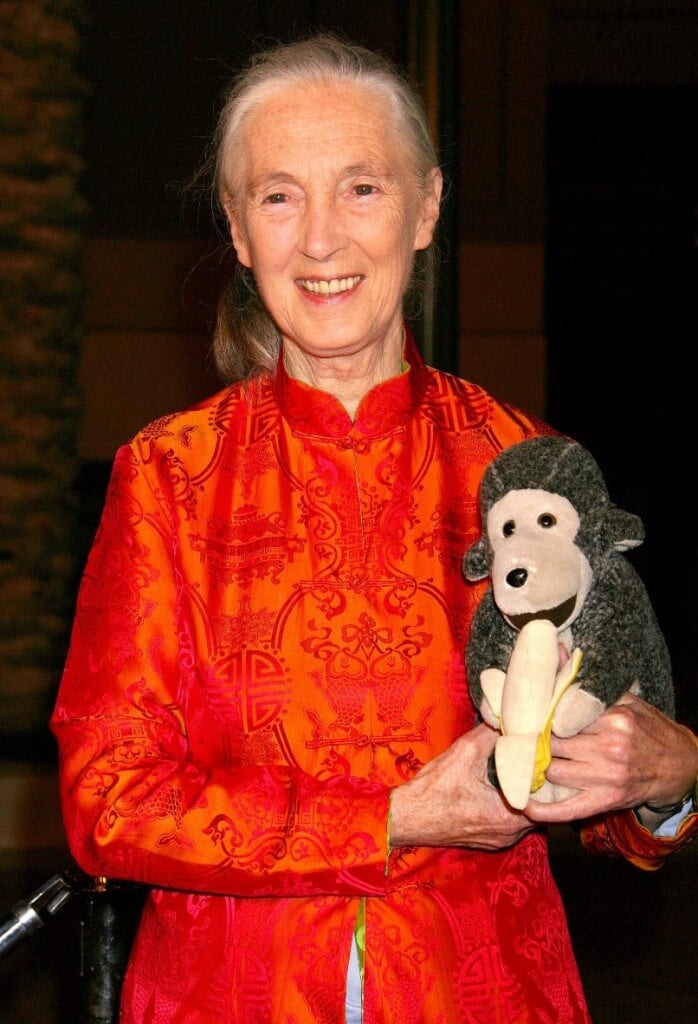 ©starmaxinc.com
©starmaxinc.com“Extensive experiments proving the damaging effects of maternal deprivation and isolation were carried out on rhesus monkeys by Harry Harlow and his students in the 1950s, 1960s and 1970s. And even after proof had been obtained, Harlow continued to devise ever more stressful situations… These experiments, getting more and more extreme, were unbelievably cruel. Nevertheless researchers continued working in this field after Harlow’s death, and continue to do so today. ….It is my understanding that monkeys are being subjected to what I consider inhumane experiments at a laboratory in Maryland that is, to some extent, funded by public money. I was shown a video in which infant monkeys were taking part in experiments which I considered extremely cruel and unacceptable…..I am shocked and saddened that this is so.”
Dr. Jane Goodall, DBE
Founder, The Jane Goodall Institute
U.N. Messenger of Peace

“In the past, I conducted experiments on the impact of social deprivation on monkey intelligence and abnormal social behavior. I eventually chose to leave that area of research because I came to believe that those models did not accurately represent the development and presentation of human mental illness. I came to the view that those models could not adequately inform innovative directions for successful clinical intervention to justify the costs in suffering and pain. I see nothing to alter that view with respect to the program of primate deprived early experience research currently being conducted at the NIH.”
John P. Gluck, Ph.D.
Emeritus Professor of Psychology, University of New Mexico
Research Professor, Kennedy Institute of Ethics, Georgetown University

“As someone who has spent her career documenting primates’ rich social and emotional lives, I found it excruciating to watch the video of NIH’s fear- and anxiety-inducing experiments on vulnerable baby monkeys and, even worse, to know that behind it are hundreds of hours of additional footage and other similar experiments still going on. Taken as a group and without exception, these maternal-deprivation experiments are cruel, plunging infant monkeys into hellish conditions that they can neither control nor escape from. Both ethically and morally, these experiments have no place in science today.”
Barbara J. King, Ph.D.
Chancellor Professor of Anthropology, College of William & Mary

“It is my assessment that the monkeys used in these experiments experience substantial psychological (and likely physiological) harm. It is also highly likely that the behavioral and physiological states of these monkeys are neither homologous nor analogous to specific psychological pathologies in humans. Given these realities and the available published research on the topic, I do not see any convincing evidence that there will be results from the studies that move our understanding of human psychopathology forward. I cannot consider the depicted experiments, designed to create and study psychopathology in monkeys, to be a valuable undertaking that will likely contribute to the health and well being of humans.”
Agustín Fuentes, Ph.D.
Professor and Chair, Department of Anthropology, University of Notre Dame

“If the goal is to model substrates of human psychiatric diseases, then these efforts are hopelessly crude and antiquated, having long been superseded by neuroimaging studies of human patients.”
Lawrence A. Hansen, M.D.
Professor of Neuroscience and Pathology
University of California–San Diego School of Medicine

“If these experiments are meant to parallel or predict the psychopathy and mental illness of human infants in the care of negligent, absent, and/or abusive mothers, they fail profoundly. Contrived maternal deprivation, chronic exposure to stressful experimental paradigms, confinement, and social isolation in laboratory settings do not parallel the types of early stressors experienced by most human mental illness sufferers. The NIH experiments depicted on video include constraining infants in small cages and startling them with loud noises, trapping infants and then threatening them with human experimenters, or caging them with a drugged, unresponsive mother. These procedures do not accurately or creatively replicate the stressful situations believed to precipitate mental illness in humans.”
Nora J. Johnson, Ph.D.
Clinical Psychologist
University of Pennsylvania Health System

“For the past three decades Suomi’s group has deprived hundreds of infant macaques of maternal contact to cause them to suffer from a range of severe and persistent cognitive, social, emotional, and physical deficits. There is no compelling evidence that these studies are now or have ever been beneficial to humans or other animals. This line of outdated and irrelevant research has unfortunately been allowed to proceed without proper scientific and ethical scrutiny by the NIH and the research community.”
Lori Marino, Ph.D.
Executive Director, The Kimmela Center for Animal Advocacy
Former Senior Lecturer in Neuroscience and Animal Behavior, Emory University